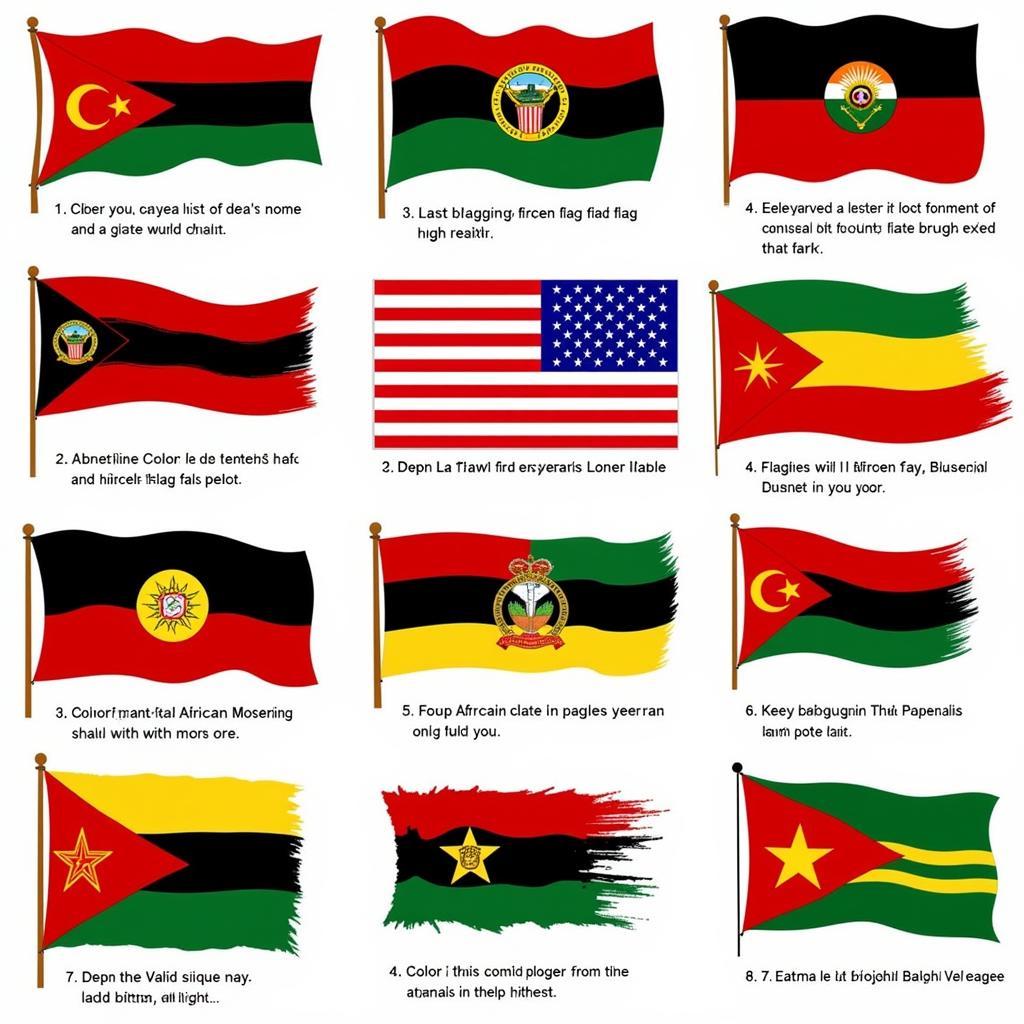Celebrating African Heritage: Exploring the African Holiday Kwanzaa
Kwanzaa, a vibrant and meaningful African American holiday, offers a unique opportunity to connect with African heritage and celebrate community. This week-long celebration, observed from December 26th to January 1st, is rich in symbolism, tradition, and cultural significance.
Delving into the History and Principles of Kwanzaa
Kwanzaa, established in 1966 by Maulana Karenga, was created in the midst of the Civil Rights Movement as a way to unite and uplift African Americans. Rooted in the first harvest celebrations of Africa, Kwanzaa draws inspiration from various cultures across the continent. The name “Kwanzaa” originates from the Swahili phrase “matunda ya kwanza,” meaning “first fruits.” This emphasizes the connection to African harvest traditions. Kwanzaa is not a religious holiday, but a cultural one, welcoming people of all faiths to participate. It centers around seven core principles, known as the Nguzo Saba: Umoja (Unity), Kujichagulia (Self-determination), Ujima (Collective Work and Responsibility), Ujamaa (Cooperative Economics), Nia (Purpose), Kuumba (Creativity), and Imani (Faith). Each day of Kwanzaa focuses on one of these principles, encouraging reflection and commitment to these values.
Kwanzaa Traditions and Symbols: A Deeper Look
Kwanzaa celebrations are filled with vibrant rituals and symbolic items that connect participants to their African roots. The Kinara, a candle holder representing the ancestral roots, holds seven candles – Mishumaa Saba – three red, three green, and one black. These symbolize the struggles and triumphs of African people. The Mkeka, a straw mat representing the foundation of African history and tradition, serves as the centerpiece of the Kwanzaa setting. Other essential elements include Mazao (crops), representing the fruits of collective labor; Vibunzi (ears of corn), symbolizing children and the future; Kikombe cha Umoja (unity cup), used to pour libations in honor of ancestors; and Zawadi (gifts), often handmade, which are given to encourage growth and achievement.
How is Kwanzaa Celebrated? A Guide to the Festivities
Kwanzaa is celebrated through various activities that emphasize community, reflection, and cultural pride. Each night, a candle on the Kinara is lit, followed by discussions about the corresponding principle. Families gather for Karamu, a communal feast, on December 31st, often featuring traditional African dishes. Music, dance, storytelling, and poetry readings are integral parts of Kwanzaa festivities, expressing the rich artistic heritage of Africa. Children play a central role in the celebrations, learning about their history and embracing the values of Kwanzaa. Gift-giving is also a part of Kwanzaa, particularly for children, with gifts often focusing on educational and cultural items. You can check out our resources on african american holidays 2017.
Kwanzaa and its Global Impact
While Kwanzaa originated in the United States, its message of unity, self-determination, and cultural pride resonates with people of African descent worldwide. Kwanzaa celebrations can be found in various countries, adapting to local traditions while maintaining the core principles of the holiday. The growing global recognition of Kwanzaa underscores its significance as a celebration of African heritage and a platform for promoting cultural understanding. For ideas on how to commemorate these holidays, take a look at african american christmas cards religious.
Conclusion: Embracing the Spirit of Kwanzaa
Kwanzaa offers a powerful opportunity to connect with African heritage, celebrate community, and reflect on the Nguzo Saba principles. Whether you are of African descent or simply interested in learning about different cultures, participating in Kwanzaa can be a rich and rewarding experience. Embrace the spirit of Kwanzaa and its message of unity, self-determination, and cultural pride. If you are planning a Kwanzaa celebration, you might find useful information at african american museum kwanzaa. Check out also african american greeting cards fundraiser and african american christmas art.
Dr. Abena Osei, a renowned scholar of African studies, notes, “Kwanzaa is a celebration of heritage, resilience, and the power of community. It’s a time for reflection, renewal, and recommitment to the values that uplift and empower.” Professor Kwame Nkrumah, another expert, adds, “Kwanzaa provides a framework for building strong families, vibrant communities, and a more just and equitable world.”
When do you celebrate Kwanzaa? Kwanzaa is celebrated annually from December 26th to January 1st.
What is the significance of Kwanzaa? Kwanzaa is a celebration of African American culture and heritage, focusing on community, family, and self-determination.
What are the seven principles of Kwanzaa? The Nguzo Saba, or seven principles, are Umoja (Unity), Kujichagulia (Self-determination), Ujima (Collective Work and Responsibility), Ujamaa (Cooperative Economics), Nia (Purpose), Kuumba (Creativity), and Imani (Faith).
Need help planning your African Holiday Kwanzaa celebration? Contact us at Phone: +255768904061, Email: kaka.mag@gmail.com or visit us at Mbarali DC Mawindi, Kangaga, Tanzania. Our customer service team is available 24/7.


